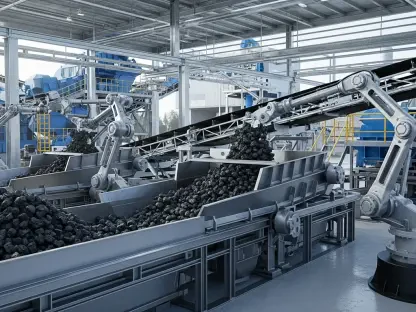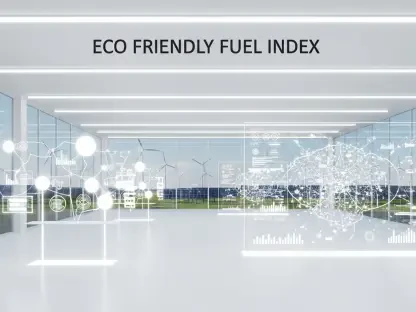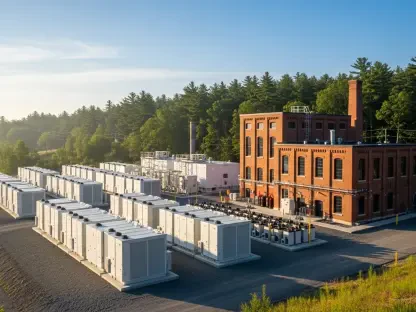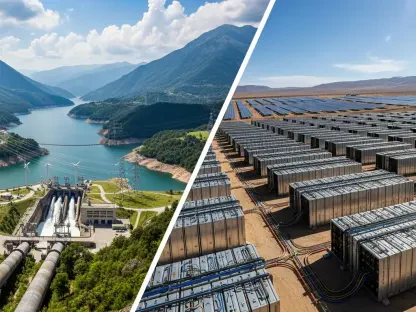In a world increasingly driven by the urgent need to decarbonize industries like maritime and aviation, innovative partnerships are emerging as critical catalysts for change, and a groundbreaking collaboration between an Australian clean energy company and a forestry operator is setting the stage for a transformative leap in renewable fuel production. This alliance focuses on harnessing sustainable biomass to create renewable methanol, a fuel poised to play a pivotal role in reducing emissions in hard-to-abate sectors. By combining expertise in clean energy technology with access to forestry resources, this partnership represents a significant stride toward a low-carbon future. It also aligns with broader national efforts to position Australia as a leader in the global sustainable fuel market, showcasing how strategic cooperation can address both environmental and economic challenges.
Driving Sustainable Fuel Innovation
Biomass as a Renewable Resource
The partnership between HAMR Energy and OneFortyOne centers on utilizing forestry residues as a sustainable feedstock for renewable methanol production. Under a recently formalized memorandum of understanding (MoU), OneFortyOne, a forestry and sawmill operator, will supply biomass residues to HAMR’s ambitious Portland Renewable Fuels (PRF) Project in Victoria, Australia. This initiative, valued at an estimated AUD 2 billion (USD 1.3 billion), aims to produce a fuel capable of decarbonizing industries with limited low-carbon alternatives. Over the coming 18 to 24 months, the collaboration will focus on testing and in-field trials, with OneFortyOne providing sample wood fiber to validate feedstock assumptions. This process is essential for refining biomass specifications and ensuring long-term supply stability, laying the groundwork for a scalable and reliable production model that could redefine how renewable fuels are sourced and utilized.
Expanding Regional Opportunities
Beyond the immediate scope of the PRF Project, the alliance also explores potential expansion into new territories. OneFortyOne’s forestry assets in the Nelson and Marlborough regions of New Zealand present additional opportunities for replicating this sustainable model. The partnership’s vision is to establish a robust commercial framework that not only secures feedstock for HAMR’s operations in Australia but also sets a precedent for similar initiatives abroad. This strategic foresight underscores the importance of adaptability in the renewable energy sector, where regional differences in resources and infrastructure must be navigated carefully. By leveraging OneFortyOne’s established presence in multiple locations, the collaboration aims to create a blueprint for biomass-driven renewable fuel production that can be tailored to diverse environments, amplifying its impact on global decarbonization efforts.
A Vision for a Low-Carbon Future
Project Milestones and Technological Progress
At the heart of this partnership lies the PRF Project, which targets an annual production of up to 300,000 tonnes of renewable methanol by integrating forestry residues with green hydrogen. Having completed its pre-front-end engineering design (pre-FEED) phase under the guidance of a leading German engineering firm, the project is on track to become operational by 2029. This timeline reflects a meticulous approach to development, ensuring that technological and logistical challenges are addressed before full-scale production begins. The initiative aligns with the growing trend of transitioning to low-carbon liquid fuels (LCLF), a critical component of global efforts to reduce greenhouse gas emissions. Industry leaders have hailed this collaboration as a major milestone, emphasizing its potential to reshape the renewable energy landscape through innovative fuel solutions.
Economic and Environmental Synergy
From the perspective of OneFortyOne, this alliance offers a unique opportunity to transform lower-value forestry residues into high-value renewable methanol, generating new revenue streams while supporting emissions reduction goals. This dual benefit of economic gain and environmental stewardship is a recurring theme in the push for sustainable fuels, highlighting how industrial byproducts can be repurposed for greater impact. Meanwhile, the partnership benefits from a supportive policy environment, with the Australian Government’s Cleaner Fuels Program allocating AUD 1.1 billion to promote the development of low-carbon liquid fuels. Such backing reinforces the strategic importance of projects like PRF, positioning Australia as a key player in the global renewable methanol market. The convergence of industrial expertise, technological innovation, and governmental support creates a powerful synergy that drives this initiative forward.
Reflecting on a Sustainable Legacy
Looking back, the collaboration between HAMR Energy and OneFortyOne stood as a defining moment in the journey toward sustainable fuel production. It demonstrated how strategic alliances could bridge the gap between resource availability and technological innovation, ensuring a steady supply of biomass for renewable methanol. Rigorous testing and validation efforts paved the way for operational success, while alignment with national clean energy policies amplified the project’s impact. By turning forestry residues into a valuable resource, the initiative not only advanced decarbonization in critical industries but also established a replicable model for economic and environmental progress. Moving forward, the focus should remain on scaling such partnerships, refining processes through continued trials, and advocating for policies that bolster the renewable energy sector, ensuring that this legacy of innovation continues to inspire future breakthroughs.









